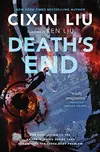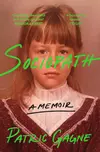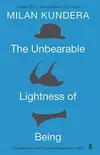
Yuhan
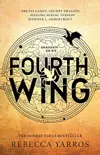
Eh. Picked up one of the most popular novels hoping for something actually good but was sorely disappointed. Easy to read but little more than just horny slop, with overused tropes and very obvious "inspirations" from other popular novels in the same category.
I've read more sophistication by teenage first-time writers on wattpad. Take away the overwheling amount of sex and its not much more than a children's novel. Characters are incredibly 1D (everyone is either an angel or the exact same flavour of arsehole and then they all die wow no one could have ever seen that coming), you can see any plot twists coming half a book away, everything has to have the threat of death for no sensible reason, main characters are incredibly unoriginal Xaden somehow decides to just pick up a whole new personality after fucking , if anyone "retorts" again I'm gonna throw up, and please for the love of everything NOBODY calls their relatives "cousin" and "younger sister"
"Hey younger sister"
What the frick
Eh. Picked up one of the most popular novels hoping for something actually good but was sorely disappointed. Easy to read but little more than just horny slop, with overused tropes and very obvious "inspirations" from other popular novels in the same category.
I've read more sophistication by teenage first-time writers on wattpad. Take away the overwheling amount of sex and its not much more than a children's novel. Characters are incredibly 1D (everyone is either an angel or the exact same flavour of arsehole and then they all die wow no one could have ever seen that coming), you can see any plot twists coming half a book away, everything has to have the threat of death for no sensible reason, main characters are incredibly unoriginal Xaden somehow decides to just pick up a whole new personality after fucking , if anyone "retorts" again I'm gonna throw up, and please for the love of everything NOBODY calls their relatives "cousin" and "younger sister"
"Hey younger sister"
What the frick
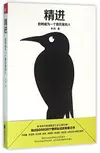
Very interesting points and well organised with summaries and exercises! Doesn't baby you like a lot of English non fic does (I'm looking at you, atomic habits), which I appreciate, but does a wonderfully good job of making me feel lectured. That might be more a reflection on the fact that most similar teaching I got in Chinese (primary school) was actually in fact being lectured at me, and so it's likely a me problem and not a problem of this book.
Mrs Liu you still owe me therapy.
Very interesting points and well organised with summaries and exercises! Doesn't baby you like a lot of English non fic does (I'm looking at you, atomic habits), which I appreciate, but does a wonderfully good job of making me feel lectured. That might be more a reflection on the fact that most similar teaching I got in Chinese (primary school) was actually in fact being lectured at me, and so it's likely a me problem and not a problem of this book.
Mrs Liu you still owe me therapy.

Mostly enjoyable! Very 1D depictions of the rich that feels for the sake of justifying hating them. People who hate everyone aren't much fun to be around in real life, and nor are their viewpoints much fun to read from.
Mostly enjoyable! Very 1D depictions of the rich that feels for the sake of justifying hating them. People who hate everyone aren't much fun to be around in real life, and nor are their viewpoints much fun to read from.

TW: racism, rape and pedophilia
Very uncomfortable read. I was just about to say its a product of its time, and searched it up and it was published in 1985??!! UHHHHH OKKK
It's got comically questionable depictions of minority ethnics and innntterresting ideas about rape (damn everyone loves it apparently. Raping AND being raped?). At this point I'd taken it as a product of its time (only to find out now that it's actually pretty recent), or maybe it's more to help build characters or setting the scene by showcasing viewpoints on matters rather than portraying as fact, and then BAM INCESTUOUS PEDOPHILIA. Maybe 14 year olds were considered more adult then??... Uhhh.. Nope ok she's in school uniform and uhhhh ok cool he's playing nursery games with her to get her to UHHHH OK nvm EWWW
My flavourite quote:
(in reference to two white people having sex for the first time on their honeymoon)
"he slipped his hand under the sheet and caresses her FLAT, STRAIGHT PUBIC HAIR: the PUBIC HAIR OF A JAPANESE"
Just checked my east asian pubes and they're definitely still curly LOL why does bro think we have an elvis presley hairdo down there I'm crying 😭
TW: racism, rape and pedophilia
Very uncomfortable read. I was just about to say its a product of its time, and searched it up and it was published in 1985??!! UHHHHH OKKK
It's got comically questionable depictions of minority ethnics and innntterresting ideas about rape (damn everyone loves it apparently. Raping AND being raped?). At this point I'd taken it as a product of its time (only to find out now that it's actually pretty recent), or maybe it's more to help build characters or setting the scene by showcasing viewpoints on matters rather than portraying as fact, and then BAM INCESTUOUS PEDOPHILIA. Maybe 14 year olds were considered more adult then??... Uhhh.. Nope ok she's in school uniform and uhhhh ok cool he's playing nursery games with her to get her to UHHHH OK nvm EWWW
My flavourite quote:
(in reference to two white people having sex for the first time on their honeymoon)
"he slipped his hand under the sheet and caresses her FLAT, STRAIGHT PUBIC HAIR: the PUBIC HAIR OF A JAPANESE"
Just checked my east asian pubes and they're definitely still curly LOL why does bro think we have an elvis presley hairdo down there I'm crying 😭

Eh. Picked up one of the most popular novels hoping for something actually good but was sorely disappointed. Easy to read but little more than just horny slop.
I've read more sophistication by teenage first-time writers on wattpad. Take away the overwheling amount of sex and its not much more than a children's novel. Characters are incredibly 1D (everyone is either an angel or the exact same flavour of arsehole and then they all die wow no one could have ever seen that coming), you can see any plot twists coming half a book away, everything has to have the threat of death for no sensible reason, main characters are incredibly unoriginal Xaden somehow decides to just pick up a whole new personality after fucking , if anyone "retorts" again I'm gonna throw up, and please for the love of everything NOBODY calls their relatives "cousin" and "younger sister"
"Hey younger sister"
What the frick
Eh. Picked up one of the most popular novels hoping for something actually good but was sorely disappointed. Easy to read but little more than just horny slop.
I've read more sophistication by teenage first-time writers on wattpad. Take away the overwheling amount of sex and its not much more than a children's novel. Characters are incredibly 1D (everyone is either an angel or the exact same flavour of arsehole and then they all die wow no one could have ever seen that coming), you can see any plot twists coming half a book away, everything has to have the threat of death for no sensible reason, main characters are incredibly unoriginal Xaden somehow decides to just pick up a whole new personality after fucking , if anyone "retorts" again I'm gonna throw up, and please for the love of everything NOBODY calls their relatives "cousin" and "younger sister"
"Hey younger sister"
What the frick

I am SO MAD at this book because the first half is so perfect and then it drives straight off a cliff. nyyyyyyoooooooooommmmmmmmmmmmmmmm
parts that I love/general comments: (and then I'll open fire on criticisms later)
- For context, I literally study at oxford am graduating this year. This book made my city come alive to me, persuaded me to touch grass and man reallllly made graduating and leaving way harder than it was gonna be lol. Thank you to this book for gifting my city to me again before I leave.
- For context, I'm a first gen Chinese immigrant. I've been obsessed with the differences between the two languages for yoinks and this book actually brought many flavours of what I love in Chinese/East Asian literature that's often lost in translations (reference not intended but I'll take it anyway thank you thank you). Thank you R F Kuang for letting the great reader base of English only peeps know what they're missing out on LOL. Understanding both languages also made this book amazing. This book wasn't written for me but it sure felt like it was B)
- Can't believe that no one complained that Oxford water tastes bad LOL I swear it's the only thing people talk about in freshers (I still don't get what is up with this y'all btw Bristol tastes even worse)
- Working you to the bone is real and true though. Could not be the maths dept actually not letting you to go fourth year without at least a 2.1, it gen might as well feel like being dragged out and thrown down a tower.
- Bro I never got oysters at a college ball I want my money back. Oh wait, I never paid cus I organised that shit LOL (lil side note just cus misinformation annoys me, we don't get any money from college and nor are we allowed to turn a profit, and we definitely would not be able to afford oysters)
- Griffin is SO REAL for missing being a student. I miss my first year room. New building st Peter’s will always have my heart
- secretly wished that the author had included some explanations of language using some more commonly misunderstood chinese terms. Just for personal satisfaction. Hearing people say the ‘Ying to my Yang’ I umh uh I ahahaha uhhh AAAAAAAAAAAAAAAAAAAAAAAAAAAAAA
criticisms:
I genuinely have few bad words to say about the first half, and I think that's why the whiplash of so many problems being in the second half has me so sad :((((
- lots of plotholes. loads.
- killing like everyone within in two chapters with not much reason really gave me wattpad fic flashbacks. I think they were meant to make me sad, but the whole situation was so fanatical and rushed I was more like uhhhh ok
- Not sure about the notion of violence being the only solution to everything. And even as a first gen chinese immigrant who’s had a fair share of marginalizing experiences (if anyone tries again to correct my own EXPERIENCES of a different political system I’m going to scream thx), I’m skeptical at the portrayal that all white people are imperialists and feel that that sterotype is harmful. I know this is the 1830s but my point still stands, it is written today for people today.
- again, I do believe that it is difficult to fundamentally understand the concept of different cultures without having actually fully experienced them, and this is something I sometimes struggle communicating to homegrown white brits, but most of them will try their best, and you can’t demonize people who never had that toolkit.
- Also not sure about the notion of innovation being fundamentally tied with oppression. The book does touch on the idea of a ‘freemarket’ being happily manipulated for benefits of certain groups, but did not factor it into its solution and just yelled technology bad.
- Nottt sure I’d consider the manipulation of the poor working class into fighting a cause that only has their interests as a byproduct and an afterthought as a resounding moral success.
- the working class are very 1D and portrayed as violent and stupid, to only attempt a save at the end with ‘it was never about the silver bars it was about the working conditions of our women and kids’ feels cheap and patronizing. Many of the 'problems of silver' presented such as wagons not coming off the tracks just ??? like is it better health and safety to have wagons flying off rails? surely you move the person and not the cart right. The book simultaneously tries to use silver to draw a parallel with ethical concerns with the industrial revolution, but also... highlights the fact that these problems have also existed since the industrial revolution (and somehow haven't been solved?). This undermines its own message about the problems that silver brings (if the problem existed before silver anyway, why are people only obsessed with getting rid of silver) and makes it very difficult to take the actions of the core group seriously.
anyway I've yapped enough I'm gonna go do sth else now.
I am SO MAD at this book because the first half is so perfect and then it drives straight off a cliff. nyyyyyyoooooooooommmmmmmmmmmmmmmm
parts that I love/general comments: (and then I'll open fire on criticisms later)
- For context, I literally study at oxford am graduating this year. This book made my city come alive to me, persuaded me to touch grass and man reallllly made graduating and leaving way harder than it was gonna be lol. Thank you to this book for gifting my city to me again before I leave.
- For context, I'm a first gen Chinese immigrant. I've been obsessed with the differences between the two languages for yoinks and this book actually brought many flavours of what I love in Chinese/East Asian literature that's often lost in translations (reference not intended but I'll take it anyway thank you thank you). Thank you R F Kuang for letting the great reader base of English only peeps know what they're missing out on LOL. Understanding both languages also made this book amazing. This book wasn't written for me but it sure felt like it was B)
- Can't believe that no one complained that Oxford water tastes bad LOL I swear it's the only thing people talk about in freshers (I still don't get what is up with this y'all btw Bristol tastes even worse)
- Working you to the bone is real and true though. Could not be the maths dept actually not letting you to go fourth year without at least a 2.1, it gen might as well feel like being dragged out and thrown down a tower.
- Bro I never got oysters at a college ball I want my money back. Oh wait, I never paid cus I organised that shit LOL (lil side note just cus misinformation annoys me, we don't get any money from college and nor are we allowed to turn a profit, and we definitely would not be able to afford oysters)
- Griffin is SO REAL for missing being a student. I miss my first year room. New building st Peter’s will always have my heart
- secretly wished that the author had included some explanations of language using some more commonly misunderstood chinese terms. Just for personal satisfaction. Hearing people say the ‘Ying to my Yang’ I umh uh I ahahaha uhhh AAAAAAAAAAAAAAAAAAAAAAAAAAAAAA
criticisms:
I genuinely have few bad words to say about the first half, and I think that's why the whiplash of so many problems being in the second half has me so sad :((((
- lots of plotholes. loads.
- killing like everyone within in two chapters with not much reason really gave me wattpad fic flashbacks. I think they were meant to make me sad, but the whole situation was so fanatical and rushed I was more like uhhhh ok
- Not sure about the notion of violence being the only solution to everything. And even as a first gen chinese immigrant who’s had a fair share of marginalizing experiences (if anyone tries again to correct my own EXPERIENCES of a different political system I’m going to scream thx), I’m skeptical at the portrayal that all white people are imperialists and feel that that sterotype is harmful. I know this is the 1830s but my point still stands, it is written today for people today.
- again, I do believe that it is difficult to fundamentally understand the concept of different cultures without having actually fully experienced them, and this is something I sometimes struggle communicating to homegrown white brits, but most of them will try their best, and you can’t demonize people who never had that toolkit.
- Also not sure about the notion of innovation being fundamentally tied with oppression. The book does touch on the idea of a ‘freemarket’ being happily manipulated for benefits of certain groups, but did not factor it into its solution and just yelled technology bad.
- Nottt sure I’d consider the manipulation of the poor working class into fighting a cause that only has their interests as a byproduct and an afterthought as a resounding moral success.
- the working class are very 1D and portrayed as violent and stupid, to only attempt a save at the end with ‘it was never about the silver bars it was about the working conditions of our women and kids’ feels cheap and patronizing. Many of the 'problems of silver' presented such as wagons not coming off the tracks just ??? like is it better health and safety to have wagons flying off rails? surely you move the person and not the cart right. The book simultaneously tries to use silver to draw a parallel with ethical concerns with the industrial revolution, but also... highlights the fact that these problems have also existed since the industrial revolution (and somehow haven't been solved?). This undermines its own message about the problems that silver brings (if the problem existed before silver anyway, why are people only obsessed with getting rid of silver) and makes it very difficult to take the actions of the core group seriously.
anyway I've yapped enough I'm gonna go do sth else now.
